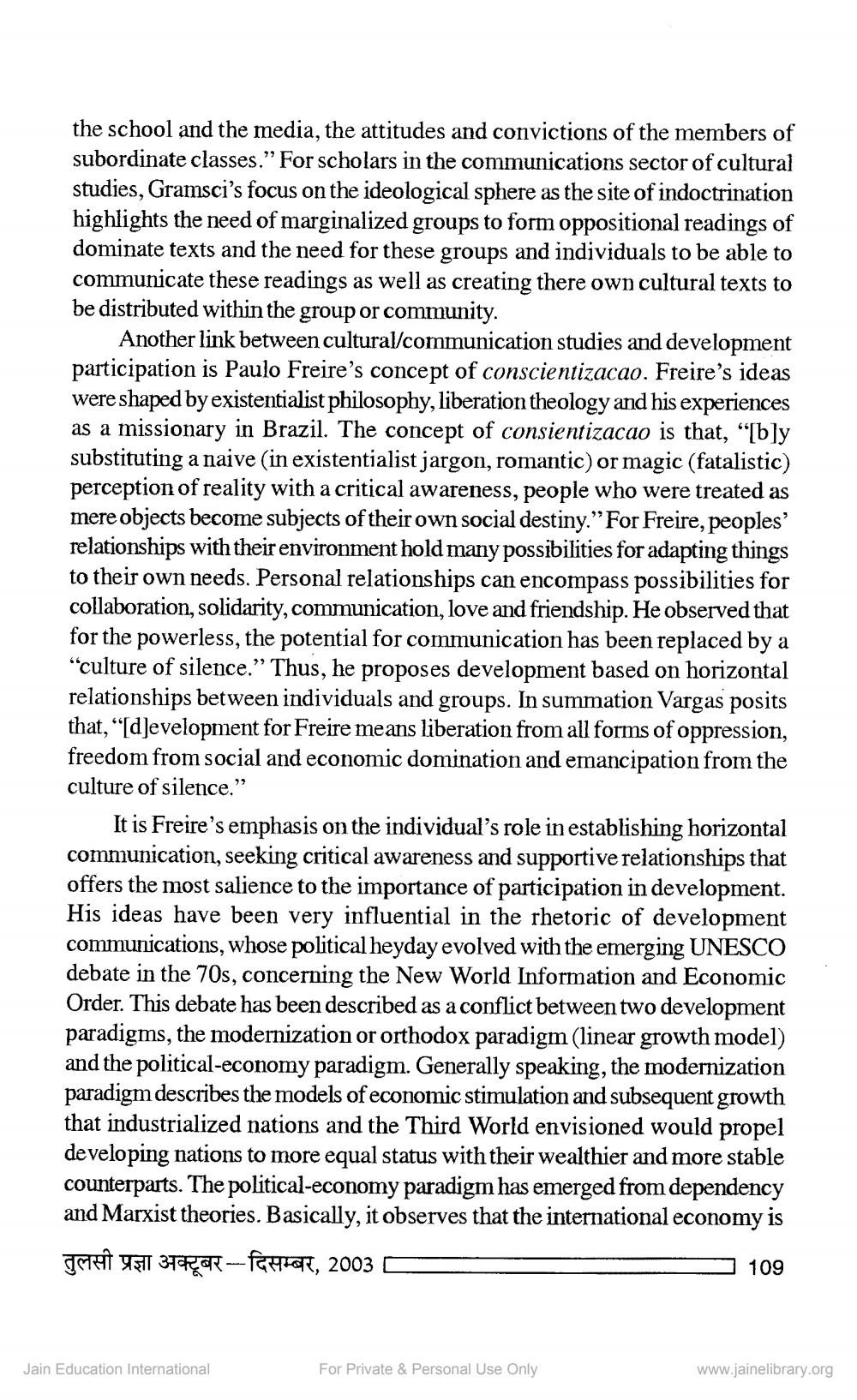________________ the school and the media, the attitudes and convictions of the members of subordinate classes." For scholars in the communications sector of cultural studies, Gramsci's focus on the ideological sphere as the site of indoctrination highlights the need of marginalized groups to form oppositional readings of dominate texts and the need for these groups and individuals to be able to communicate these readings as well as creating there own cultural texts to be distributed within the group or community. Another link between cultural/communication studies and development participation is Paulo Freire's concept of conscientizacao. Freire's ideas were shaped by existentialist philosophy, liberation theology and his experiences as a missionary in Brazil. The concept of consientizacao is that, "[b]y substituting a naive (in existentialist jargon, romantic) or magic (fatalistic) perception of reality with a critical awareness, people who were treated as mere objects become subjects of their own social destiny." For Freire, peoples' relationships with their environment hold many possibilities for adapting things to their own needs. Personal relationships can encompass possibilities for collaboration, solidarity, communication, love and friendship. He observed that for the powerless, the potential for communication has been replaced by a "culture of silence." Thus, he proposes development based on horizontal relationships between individuals and groups. In summation Vargas posits that, "[d]evelopment for Freire means liberation from all forms of oppression, freedom from social and economic domination and emancipation from the culture of silence." It is Freire's emphasis on the individual's role in establishing horizontal communication, seeking critical awareness and supportive relationships that offers the most salience to the importance of participation in development. His ideas have been very influential in the rhetoric of development communications, whose political heyday evolved with the emerging UNESCO debate in the 70s, concerning the New World Information and Economic Order. This debate has been described as a conflict between two development paradigms, the modernization or orthodox paradigm (linear growth model) and the political-economy paradigm. Generally speaking, the modernization paradigm describes the models of economic stimulation and subsequent growth that industrialized nations and the Third World envisioned would propel developing nations to more equal status with their wealthier and more stable counterparts. The political-economy paradigm has emerged from dependency and Marxist theories. Basically, it observes that the international economy is THE 3Takk fytok, 2003 C 109 Jain Education International For Private & Personal Use Only www.jainelibrary.org




